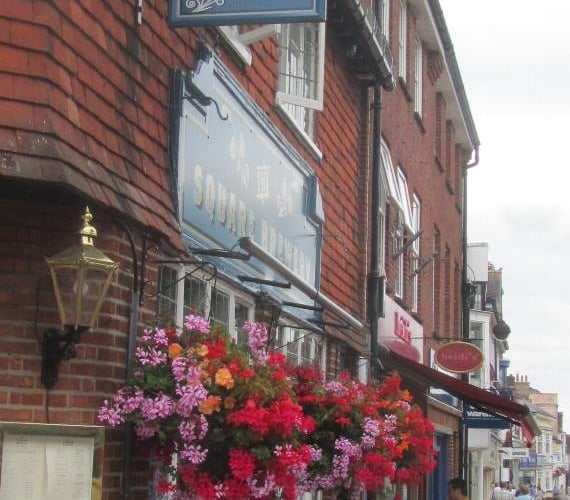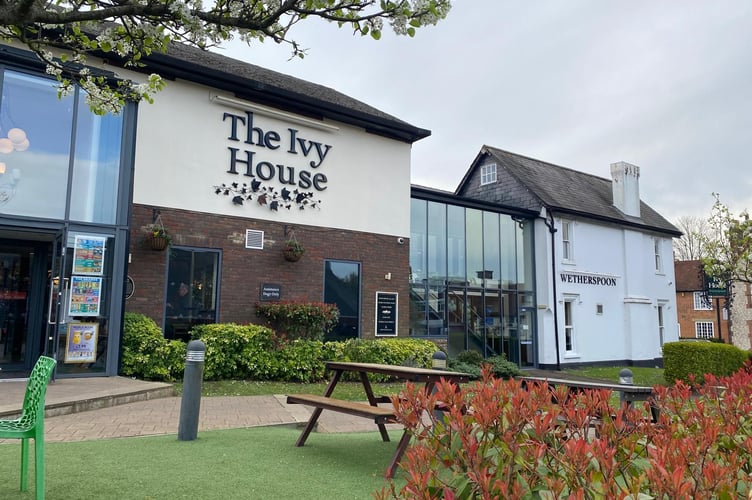With news that a J D Wetherspoon is almost definitely coming to Farnham, local pub owners from the surrounding area have shared their thoughts on its potential impact on the town’s hospitality scene.
The budget pub chain giant recently submitted a planning application for minor changes to its East Street premises in Farnham, following a deal to take over the former Slug & Lettuce site last year.
Drawing from their experiences with Wetherspoons, pub owners in Alton and Petersfield have offered a range of views on how Farnham may either benefit or suffer from the new addition.

Some say that the Wetherspoons has provided healthy competition, forcing them to up their game, while providing a boost to the town centre.
Others, however, argue that the scale and purchasing power of the chain undercuts smaller rivals, posing a constant threat.
In Alton, the Ivy House Wetherspoons opened in 2015.
Phil Troubridge, landlord of The Eight Bells on Church Street, said the opening initially had a negative impact on business.

“When Wetherspoons started here, it obviously had an effect because they sell dirt-cheap stuff—£1.99 a pint—and it's alright, but it has no atmosphere,” he said.
“You can live with it, but these big organisations are just trying to put everyone else out of business. They’re not pubs. If you want a real pub experience, you need to go to a real pub.”
Mr. Troubridge also reflected on the broader consequences, adding: “Some people have said it will knock £30,000 off house prices in Farnham, but at least you know where it is.
“That might be a cynical way to look at it, but it’s certainly true around here. It’s bound to have some effect—some of my old customers go there because it’s cheap and they offer cheap food."
He went on to acknowledge the positives Wetherspoons brings, saying, “I’m sure Wetherspoons has some sites that are more traditional and with more character.
“They provide local employment and have taken up some lovely redundant buildings, but there will still be a knock-on effect.”

In Petersfield, Wetherspoons has been a fixture for about 15 years, having taken over The Red Lion pub.
Dan Oates from The Square Brewery in Petersfield recognised the chain’s impact, stating, “Yes, of course it affects trade, but that’s business—you could say the same about any other pub in town.”
He pointed out the difficulty smaller pubs face in competing with Wetherspoons’ pricing, due to the chain’s economies of scale. “Their selling price is often close to our purchase price as a tied tenancy.

“This means we can’t compete on price, and if customers are looking for the cheapest possible option, they will trend toward Wetherspoons.”
Nevertheless, Mr Oates emphasised that Wetherspoons isn’t the primary challenge facing pub operators.
“It’s the extraordinary operating costs—business rates, VAT, taxes, national insurance, wages, utilities, rent, and the overall cost of products—that are the real nails in the coffin for the industry,” he said.
“Combined with a constant decline in demand due to the cost-of-living crisis, the trade is in serious decline. Without meaningful intervention from central government, it won’t be long before pubs disappear from our high streets forever.”
Jonathan Berry of The George in Petersfield reflected on the broader impact, saying, “Wetherspoons changed the whole feel of the town when it first arrived. Competition is healthy, but in the current climate, it makes things very tough.”
Dom Humphries, of The Townhouse, who previously worked for Wetherspoons, believed that the arrival of The Red Lion had “revitalised” Petersfield’s town centre.
“Wetherspoons has been here for 15 years, but we should also consider the more recent addition of the Loungers chain to the town,” he said.
“Wetherspoons rescued the cask ale industry and taught me most of what I know about the trade after a 15-year career with them.
“They fill a need in society, catering to the masses. Their no-frills approach makes it accessible and affordable, but it’s hard to compete with them,” added Mr Humphries.




